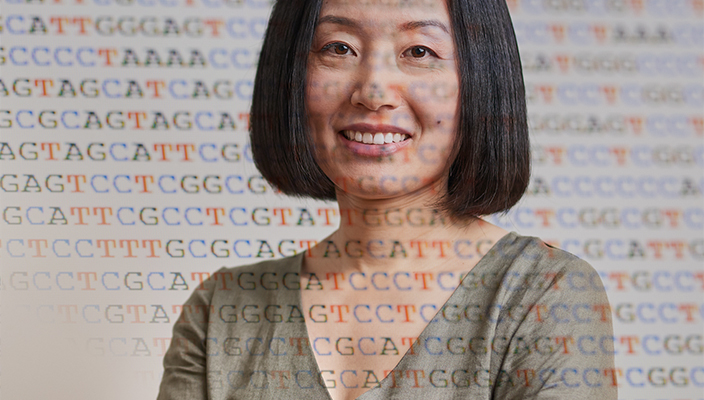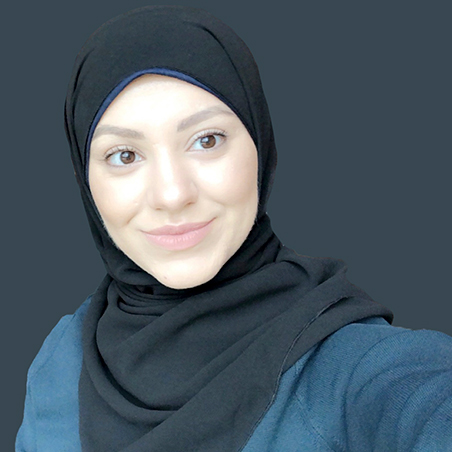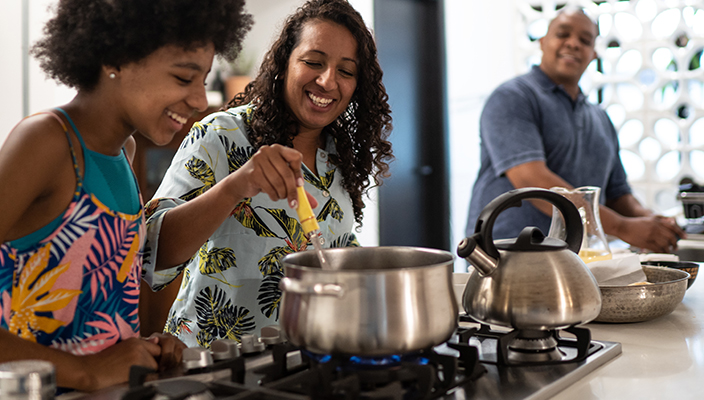Collecting Saliva for DNA
Would you do a spit-take if you knew you could spit into a tube for All of Us?
While waiting for the opportunity to provide a blood sample, some participants have been invited to order a saliva collection kit over the past few months. This lets you donate a spit sample to All of Us from the comfort of your own home. The kit includes a blue box filled with a tube, instructions, and a prepaid mailing label to return your biosample.
Spit holds just as much DNA as blood, ounce for ounce, making it a good alternative for DNA. But just for DNA—blood samples contain other information about your health.
Saliva and blood are both important to All of Us, so we may ask you to donate blood even if you are also asked to share your spit. All of Us might invite you to visit your health care provider organization (HPO), if you can do so safely, or you might get an invitation to order a kit through the mail. Keep an eye out or log in to your All of Us account to see if an invitation is waiting for you!
You Are Invited to a Summit on Black Health
Sponsored by the National Library of Medicine, the Queens Public Library, and All of Us, the 24-Hour Black Health and Healing Virtual Summit addressed different health issues in the Black community. It was held in early February. It featured talks by many speakers, including:
- Actress Amanda Seales from HBO’s Insecure
- Pediatrician and former U.S. Surgeon General Joycelyn Elders, M.D.
- WNBA star Renee Montgomery
- Kizzmekia S. Corbett, M.D., who helped develop the COVID-19 vaccine
Our own Kolbi Brown wrapped up the event with a talk about including people from all walks of life. He is the program director at the New York City Health + Hospitals/Harlem All of Us site.
Missed this event? No worries. Watch the summit videos here (free registration is required).
Come Work With All of Us
Do you get excited thinking about the future of health research? Do you love working with people from all walks of life?
All of Us is looking for active participants for paid committee positions. A spot on an All of Us committee might be just the thing for you!
The committees meet virtually, an hour at a time a few times a month. You are eligible to nominate yourself if you:
- Have completed three surveys—“The Basics,” “Lifestyle,” and “Overall Health”
- Have had your physical measurements taken
- Have provided blood and urine samples
For more information or to nominate yourself, click here. Questions? Please contact Angelica Alton at [email protected].
UNITE to End Racism in Research
NIH has started a new initiative, UNITE, that will pinpoint and root out racism embedded in research. At All of Us, we value the fact that our participants reflect the rich diversity of the country. We want to ensure the same is true of the researchers who make use of the valuable data our participant-partners —you!—provide. Read more from All of Us CEO Joshua Denny, M.D., here.
The public and other organizations are invited to give feedback on how NIH is doing on equity and inclusion. Comments are open through April 9, 2021, on the NIH website. Responses will be publicly available.
At All of Us, we are committed to action that addresses diversity, equity, inclusion, and accessibility. As a first step, we are recruiting for a director of health equity. Read more on the vacant position in the announcement here.








